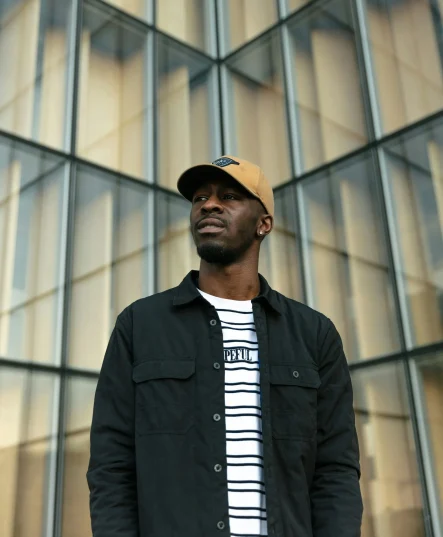What Is Counselling?
Counselling is a safe, confidential space where you can talk about whatever’s on your mind. It’s a conversation with a trained professional who is there to listen, understand, and help you work through challenges in your life. It’s not about being judged or told what to do—it’s about exploring your thoughts, feelings, and actions to find clarity and solutions that work for you.
For many men, counselling can feel unfamiliar or even uncomfortable at first. Society often teaches us to "man up," push through pain, or solve problems on our own. But sometimes, those approaches don’t work. Counselling is not about weakness; it’s about having the courage to face what’s going on in your life and take steps toward real, lasting change.

In counselling, we might talk about things like:
For men, counselling can be a space where you don’t have to put on a front. It’s about getting real—real about what’s working, what’s not, and how to move forward. It’s also not just about talking; it’s about understanding yourself better, building skills, and taking action to create the life you want.
Think of it like this: if your car had a problem, you wouldn’t hesitate to take it to a mechanic. Counselling is like that for your mental and emotional wellbeing—a tune-up for the mind, helping you run better, smoother, and stronger.
Therapy is not about "fixing" people. It’s not the same as working with a coach either. I won’t be trying to put you into a trance or making you do anything you’re uncomfortable with. As much as I’d like to give you all the answers, therapy isn’t about quick fixes or me giving you solutions. Instead, it's about exploring your thoughts, feelings, and experiences to help you gain insight, build resilience, and develop your own strategies for handling the challenges you're facing. The process takes time, and my role is to guide you, support you, and help you find your own path forward.
Pluralistic Counselling
Pluralistic counselling simply means that I don’t just stick to one method. Instead, I use a range of approaches and tools, depending on what works best for you. Everyone’s different, so no single way of doing things is right for everyone. Some days we might look at how your past has shaped you, other times we’ll focus on practical ways to solve problems in the here and now. It’s about what helps you the most.
Cognitive Behavioural Therapy
CBT is all about understanding how your thoughts, feelings, and actions are linked. For men, it’s often a good way to see how certain thought patterns may be holding you back. If you’re feeling stuck, stressed, or overwhelmed, we’ll take a look at the thoughts behind those feelings and behaviours. Together, we can change any unhelpful thinking and replace it with healthier ways to cope, so you can get back on track.
Psychodynamic Therapy
Psychodynamic therapy focuses on how your past experiences, especially in childhood, affect how you think and behave today. For men, this could involve digging into unresolved feelings like anger, guilt, or shame that may stem from past relationships or life events. By understanding these deeper issues, you can start to see why you might react in certain ways and begin to change those patterns.
Humanistic Therapy
Humanistic therapy looks at you as a whole person, not just your problems. It’s about helping you reconnect with what really matters to you and finding your purpose in life. For men, this can be especially helpful when you’re feeling disconnected from yourself or unsure about where you’re headed. It’s a safe space to talk about what’s important to you, so you can move forward in a way that feels right for you.

How Does This Work?
A lot of men feel like they have to keep things bottled up or that they need to “fix” everything on their own. These approaches give you the chance to explore things without pressure. Whether we’re working on practical ways to cope (CBT), understanding deeper issues from your past (psychodynamic), or exploring what matters to you most (humanistic), my aim is to help you feel understood, in control, and moving forward in the right direction.
By combining these approaches, we can tailor sessions to what you need in the moment—whether you need clear solutions, deeper reflection, or a balance of both. It’s all about making sure you get the support that works best for you.
Why go to therapy?
1. To Gain a Better Understanding of Yourself
Therapy gives you the space to explore your thoughts, feelings, and behaviours in a safe, non-judgmental environment. It can help you understand why you act or feel the way you do, and why certain patterns keep repeating in your life. This self-awareness can lead to positive change and a better understanding of who you really are.
2. To Work Through Difficult Emotions
Whether it’s anger, sadness, guilt, or anxiety, we all have emotions that can sometimes feel overwhelming. Therapy helps you process and manage those feelings in a healthy way. It’s a chance to express yourself freely and explore what’s behind your emotions, so they don’t control you.
3. To Cope with Life’s Challenges
Life can be tough—whether it’s stress from work, relationship problems, family issues, or dealing with loss. Therapy can provide you with the tools to cope with whatever challenges you're facing. It’s about finding solutions, building resilience, and learning to handle things better when life gets tough.
4. To Overcome Past Trauma
Sometimes, unresolved issues from the past can hold you back in the present. Therapy helps you process past trauma or difficult experiences so you can stop them from affecting your current life. This healing can bring peace and open the door to moving forward.
5. To Improve Relationships
Whether it’s with a partner, family, friends, or colleagues, therapy can help you better understand your relationships. It can help you improve communication, set boundaries, and navigate conflicts in healthier ways.
6. To Find Direction and Purpose
Therapy is a great place to reflect on your goals, values, and purpose in life. If you’re feeling lost or uncertain about where you're headed, therapy can help you identify what's important to you and guide you towards a fulfilling path.
7. To Break Free from Negative Cycles
If you find yourself repeating the same mistakes, feeling stuck, or struggling with unhealthy habits, therapy can help you break free from these cycles. Whether it's addiction, unhealthy thinking, or toxic behaviours, therapy provides the support and tools you need to make lasting changes.
8. Because You Deserve Support
As men, we’re often told to “man up” or “deal with it” on our own, but therapy is for everyone. You don’t have to go through tough times alone. Therapy is an opportunity to talk to someone who can offer support, a fresh perspective, and the guidance you need to move forward.
In short, therapy is not just for those with major problems—it’s a space for anyone looking to better understand themselves, heal, and improve their mental health and well-being. Whether you’re dealing with anxiety, depression, relationship struggles, or simply want to be the best version of yourself, therapy can help you get there.
Psychotherapy can help treat most mental health issues, including:
Anxiety disorders
Such as social anxiety, obsessive-compulsive disorder (OCD), phobias, panic disorder or post-traumatic stress disorder (PTSD).
Mood disorders
Such as depression or bipolar disorder.
Addictions
Such as alcohol use disorder, drug dependence or compulsive gambling.
Eating disorders
Such as anorexia or bulimia.
Personality disorders
Such as borderline personality disorder or dependent personality disorder.
Schizophrenia
Or other disorders that cause detachment from reality.

How long and how often should I expect to go to counselling?
The length of therapy really depends on what you're coming in for. If you’re looking to talk about something like anxiety before your wedding, we might only need around six sessions. However, if you’re dealing with something more complex, such as trauma or identity issues, therapy could last anywhere from 10 sessions to even two years.
When we start, we’ll discuss your needs, and I’ll give you an idea of how long I think it will take us to work through things. We’ll also do regular reviews to make sure the therapy is on track. If we feel the work is done, we can end therapy, or we can extend the sessions if needed.
We can meet at a frequency that suits you—whether that’s twice a week, once a week, or even less frequently, like every few weeks or monthly, if necessary. Ideally, though, we’ll aim to meet once a week to keep the momentum going.
What do people want from therapy:
Learning skills and coping strategies
A focus of most manualized treatment modalities.
Understanding the root of your issues
A focus of therapies of depth, insight, and relationship.
Feeling heard and understood
Feeling understood by someone who cares about you.
Sharing your thoughts and feelings
Without the risk of being judged or shamed.
During therapy sessions, you can expect to
Talk
You’ll have the chance to share your feelings, your current situation, and your goals with me. I’ll listen closely, helping you make sense of what you’re going through.
Learn
I’ll teach you about emotions, how to manage them, coping strategies, and ways to face your fears. You’ll gain new insights and tools to help you navigate challenges.
Practice
You’ll get the opportunity to practice new skills and work through obstacles in a supportive environment. This will help you build confidence and strength to deal with issues outside the therapy room.
Receive Homework
Sometimes I’ll suggest small tasks or exercises to do between sessions. This is to help reinforce what we’ve worked on and make progress outside of our time together.
Get in touch
Feel free to contact me if you have any questions about how counselling works, or to arrange an initial assessment appointment. This enables us to discuss the reasons you are thinking of coming to counselling, whether it could be helpful for you and whether I am the right therapist to help.
You can also call me on +44 78528 98135 if you would prefer to leave a message or speak to me first. I am happy to discuss any queries or questions you may have prior to arranging an initial appointment.
All enquires are usually answered within 24 hours, and all contact is strictly confidential and uses secure phone and email services.
